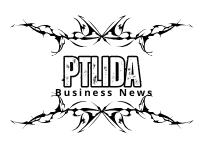Formal legal rationality was his term for the key characteristic of the kind of coherent and calculable law that was a precondition for modern political developments and the modern bureaucratic state. Weber saw this law as having developed in parallel with the growth of capitalism. Other notable early legal sociologists included Hugo Sinzheimer, Theodor Geiger, Georges Gurvitch and Leon Petrażycki in Europe, and William Graham Sumner in the U.S. Criminal law, also known as penal law, pertains to crimes and punishment. Investigating, apprehending, charging, and trying suspected offenders is regulated by the law of criminal procedure. The paradigm case of a crime lies in the proof, beyond reasonable doubt, that a person is guilty of two things.
- The executive is led by the head of government, whose office holds power under the confidence of the legislature.
- Many use their degrees to succeed in related fields, such as business, education, and finance.
- In the 19th century in England, and in 1937 in the U.S., the two systems were merged.
- Three crew members and Richard Parker, a 17-year-old cabin boy, were stranded on a raft.
King Hammurabi is revealed the code of Law Newss by the Mesopotamian sun god Shamash, also revered as the god of justice. Hugo Grotius, the founder of a purely rationalistic system of natural law, argued that law arises from both a social impulse—as Aristotle had indicated—and reason. Immanuel Kant believed a moral imperative requires laws “be chosen as though they should hold as universal laws of nature”. Jeremy Bentham and his student Austin, following David Hume, believed that this conflated the “is” and what “ought to be” problem. Bentham and Austin argued for law’s positivism; that real law is entirely separate from “morality”.
College & Schools
These are laid down in codes such as the Universal Declaration of Human Rights, the European Convention on Human Rights and the U.S. The Treaty of Lisbon makes the Charter of Fundamental Rights of the European Union legally binding in all member states except Poland and the United Kingdom. To pass legislation, a majority of the members of a legislature must vote for a bill in each house. Normally there will be several readings and amendments proposed by the different political factions. If a country has an entrenched constitution, a special majority for changes to the constitution may be required, making changes to the law more difficult.
Juris Master Put the law to work for your career or enhance your primary degree. We work hard to help our students feel welcome and valued for their unique skills and perspectives. Professor Hampson is a scholar of bankruptcy, insolvency, and the ethics of debt. His research focuses on how legal institutions can best serve our shared values during times of financial distress. He has written on a wide range of topics, from benefit corporations to debtors’ prisons.
This “great charter” or Magna Carta of 1215 also required that the King’s entourage of judges hold their courts and judgments at “a certain place” rather than dispensing autocratic justice in unpredictable places about the country. A concentrated and elite group of judges acquired a dominant role in law-making under this system, and compared to its European counterparts the English judiciary became highly centralised. In 1297, for instance, while the highest court in France had fifty-one judges, the English Court of Common Pleas had five. This powerful and tight-knit judiciary gave rise to a systematised process of developing common law. English common law was largely customary law and unwritten, until discovered, applied, and reported by the courts of law.
More meanings of law
The term failed state refers to states that cannot implement or enforce policies; their police and military no longer control security and order and society moves into anarchy, the absence of government. The executive in a legal system serves as the centre of political authority of the State. In a parliamentary system, as with Britain, Italy, Germany, India, and Japan, the executive is known as the cabinet, and composed of members of the legislature. The executive is led by the head of government, whose office holds power under the confidence of the legislature.
Natural lawyers on the other side, such as Jean-Jacques Rousseau, argue that law reflects essentially moral and unchangeable laws of nature. The concept of “natural law” emerged in ancient Greek philosophy concurrently and in connection with the notion of justice, and re-entered the mainstream of Western culture through the writings of Thomas Aquinas, notably his Treatise on Law. There have been several attempts to produce “a universally acceptable definition of law”. In 1972, Baron Hampstead suggested that no such definition could be produced. McCoubrey and White said that the question “what is law?” has no simple answer.
Canon law is only in use by members of the Catholic Church, the Eastern Orthodox Church and the Anglican Communion. Socialist law is the legal systems in communist states such as the former Soviet Union and the People’s Republic of China. Academic opinion is divided on whether it is a separate system from civil law, given major deviations based on Marxist–Leninist ideology, such as subordinating the judiciary to the executive ruling party. Emory Law’s academic centers and interdisciplinary programs provide students with access to leading legal scholars in policy and research, in-depth seminars and conferences/symposia by renowned experts, and access to respected practitioners.
Private individuals may create legally binding contracts, including arbitration agreements that adopt alternative ways of resolving disputes to standard court litigation. The creation of laws themselves may be influenced by a constitution, written or tacit, and the rights encoded therein. The law shapes politics, economics, history and society in various ways and serves as a mediator of relations between people.
